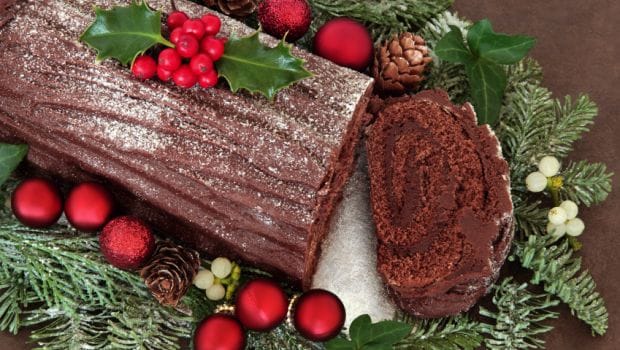December has got to be one of the most favourite months of the year. It is the time for merriment and wrapping up on all work to spend time with family and dear friends as Christmas and New Year celebrations draw near. In India, Christmas is not really a foreign festival. It is celebrated with as much fervour as any other festival in the country, with streets, houses, malls and eateries being decorated with lights, Christmas trees, Santa socks and the like. The food too is a celebration.Indian Christians may have inherited the traditional roast goose and turkey culinary customs, but have transformed them into something inherently desi. Salted beef is flavoured with garam masala, Christmas cake is supplemented with coconut and jaggery, and sweets and curries have become an indispensable part of an Indian Christmas. Different communities have their own customs and special ways of celebrating.Anglo-Indian Christmas
Perhaps the closest approximation to a proper English Christmas comes, unsurprisingly, from the Anglo-Indian community. My mother's charming and gracious friend, Mrs. Twigg, tells me about the Christmases she enjoyed as a child."Breakfast was always something porcine, either bacon and eggs or ham and eggs. At lunch, we usually had biryani (yes!). Otherwise, I remember eating turkey. Of course, the Christmas dinner always had to be a proper, traditional roast turkey with crispy roast potatoes and all the stuffings and trimmings."
 Roast potatoesThe family always gathered for drinks and with them, went round plates of the remarkable Indo-English creation, salted beef. This salted beef was no chewy, dry strip of beef. "The beef was marinated one week before Christmas in jaggery, salt petre, limbu and whole garam masala," reveals Mrs Twigg. "Finally, on Christmas day, it was removed from its marinade, sliced and then served."For sweet, the Anglo Indian household enjoys Christmas cake and plum pudding, perfumed with brandy, nutmeg and other spices. In the evening, it is time for kul kuls, rose cookies, dol dols and marzipan. The table is always groaning with so much food that it could easily last until Easter.
Roast potatoesThe family always gathered for drinks and with them, went round plates of the remarkable Indo-English creation, salted beef. This salted beef was no chewy, dry strip of beef. "The beef was marinated one week before Christmas in jaggery, salt petre, limbu and whole garam masala," reveals Mrs Twigg. "Finally, on Christmas day, it was removed from its marinade, sliced and then served."For sweet, the Anglo Indian household enjoys Christmas cake and plum pudding, perfumed with brandy, nutmeg and other spices. In the evening, it is time for kul kuls, rose cookies, dol dols and marzipan. The table is always groaning with so much food that it could easily last until Easter.
 Plum puddingGoan Christmas"Dol dols and kul kuls and marzipan are such a typical part of a Goan Christmas," sniffs my friend Cheryl Coelho, when I mention the Anglo-Indian Christmas celebration to her. When I ask Mrs Twigg about this, she is outraged. "These are Anglo-Indian sweets, borrowed by the Goans," she insists.Whatever the case, I am always greeted by a colourful tray of sweets when I go to Cheryl's house. "When I was a little girl, I remember my mother sitting in a circle with all the neighbours and preparing boxes and boxes of sweets," says her mother. "We used to make marzipan, boros (coconut sweets), dodols, kul kuls (delicious but remind me of larva) and neuris. The smell of baking was everywhere and the taste was something else."
Plum puddingGoan Christmas"Dol dols and kul kuls and marzipan are such a typical part of a Goan Christmas," sniffs my friend Cheryl Coelho, when I mention the Anglo-Indian Christmas celebration to her. When I ask Mrs Twigg about this, she is outraged. "These are Anglo-Indian sweets, borrowed by the Goans," she insists.Whatever the case, I am always greeted by a colourful tray of sweets when I go to Cheryl's house. "When I was a little girl, I remember my mother sitting in a circle with all the neighbours and preparing boxes and boxes of sweets," says her mother. "We used to make marzipan, boros (coconut sweets), dodols, kul kuls (delicious but remind me of larva) and neuris. The smell of baking was everywhere and the taste was something else."
 MarzipansI cannot vouch for the tastes of yore, but Mrs. Coelho is no slouch when it comes to the kitchen. The neuris she serves are crisp and not too sweet. In the mouth, they are a crumbly explosion of coconut and jaggery. The quivering, jelly-like dodols have Portuguese roots and are delicious also, although not so much to my liking. The plum pudding is flambéed dramatically with Cointreau (Cheryl is an avid watcher of MasterChef Australia).A Christmas dinner at the Coelho household involves plenty of food, naturally. There is salami, mince, potato chops, xacuti, choris (the spicy, fatty, unmistakably Goan, sausage) and sorpotel, an unctuous pork curry eaten with warm sannas (a spongy, fermented, white bread that looks like idlibut tastes rather different) and rice. There is always bibinca, coconut cake and Christmas cake, stuffed with fruits plump from their long bath in alcohol. Naturally, it is all washed down with glasses of home-made wine, made by an Aunty Edlyn or Aunty Rose.
MarzipansI cannot vouch for the tastes of yore, but Mrs. Coelho is no slouch when it comes to the kitchen. The neuris she serves are crisp and not too sweet. In the mouth, they are a crumbly explosion of coconut and jaggery. The quivering, jelly-like dodols have Portuguese roots and are delicious also, although not so much to my liking. The plum pudding is flambéed dramatically with Cointreau (Cheryl is an avid watcher of MasterChef Australia).A Christmas dinner at the Coelho household involves plenty of food, naturally. There is salami, mince, potato chops, xacuti, choris (the spicy, fatty, unmistakably Goan, sausage) and sorpotel, an unctuous pork curry eaten with warm sannas (a spongy, fermented, white bread that looks like idlibut tastes rather different) and rice. There is always bibinca, coconut cake and Christmas cake, stuffed with fruits plump from their long bath in alcohol. Naturally, it is all washed down with glasses of home-made wine, made by an Aunty Edlyn or Aunty Rose.
 Sorpotel
Sorpotel
Syrian Christian ChristmasEva Mathew tells me about Christmases that she celebrates in Kochi. "My grandmother is extremely particular about serving certain dishes on Christmas. One is a duck curry or a duck roast; she even used to keep ducks and chickens at home at one time. If we don't find good enough duck, we sometimes substitute it with beef stew, which she simmered till it was a thick, deep, delicious dish." There is usually cake, and sometimes fish curry or a fish moilee, fragrant with the aromas of coconut milk and spices and served with fluffy appams.Vegetable side dishes are a must and sometimes, a glass of wine is totted up as part of the festivities. Egg roast is sometimes served too. But "the duck was an indispensable dish for Christmas," insists Mathew. "Granny loved to prepare duck, and even though her beef roast was very good and we all loved it, for her, the duck really made the meal."
 Fish curry Close by, in Mangalore, the Christians offer the crimson pork indad (a silky, sweet-savoury aromatic stewed pork) as the centrepiece of the festive table. Afterwards, there are deep-fried gulios, rice cookies and laddus to satisfy one's sweet tooth.East Indian ChristmasThat leaves us with the East Indian Christmas. The East Indians are the Marathi-speaking, Catholic community settled in Mumbai and along India's north Konkan coast in Vasai, Goa, Daman, Diu and surrounding areas. Their traditions are a mix of Maharashtrian, Portuguese and Christian customs and their cuisine reflects this delicious hodge-podge of cultures.The East Indian table groans under the weight of potato chops, croquettes, mince and chicken khudi, a piquant curry made with a base of the famous bottle masala. Often, this is consumed with fugeas (little ball-shaped breads made with maida and eggs) and rice-flour appas. The East Indian bottle masala is a crucial element in the community's cooking - the dry spices were usually hand-pounded, and then filled into dark bottles to preserve their flavour.East Indian Christmases are well-known, much as the Goan Christmas, for their sweetmeats such as neuries, boros (coconut and sooji dish), rose cookies, intensely sweet date rolls, fudge, milk creams (sugar, milk and cashew nut sweet laced with vanilla) and rekejaos (a delicate sweet made with almonds and sugar).Disclaimer:The opinions expressed within this article are the personal opinions of the author. NDTV is not responsible for the accuracy, completeness, suitability, or validity of any information on this article. All information is provided on an as-is basis. The information, facts or opinions appearing in the article do not reflect the views of NDTV and NDTV does not assume any responsibility or liability for the same.
Fish curry Close by, in Mangalore, the Christians offer the crimson pork indad (a silky, sweet-savoury aromatic stewed pork) as the centrepiece of the festive table. Afterwards, there are deep-fried gulios, rice cookies and laddus to satisfy one's sweet tooth.East Indian ChristmasThat leaves us with the East Indian Christmas. The East Indians are the Marathi-speaking, Catholic community settled in Mumbai and along India's north Konkan coast in Vasai, Goa, Daman, Diu and surrounding areas. Their traditions are a mix of Maharashtrian, Portuguese and Christian customs and their cuisine reflects this delicious hodge-podge of cultures.The East Indian table groans under the weight of potato chops, croquettes, mince and chicken khudi, a piquant curry made with a base of the famous bottle masala. Often, this is consumed with fugeas (little ball-shaped breads made with maida and eggs) and rice-flour appas. The East Indian bottle masala is a crucial element in the community's cooking - the dry spices were usually hand-pounded, and then filled into dark bottles to preserve their flavour.East Indian Christmases are well-known, much as the Goan Christmas, for their sweetmeats such as neuries, boros (coconut and sooji dish), rose cookies, intensely sweet date rolls, fudge, milk creams (sugar, milk and cashew nut sweet laced with vanilla) and rekejaos (a delicate sweet made with almonds and sugar).Disclaimer:The opinions expressed within this article are the personal opinions of the author. NDTV is not responsible for the accuracy, completeness, suitability, or validity of any information on this article. All information is provided on an as-is basis. The information, facts or opinions appearing in the article do not reflect the views of NDTV and NDTV does not assume any responsibility or liability for the same.
Perhaps the closest approximation to a proper English Christmas comes, unsurprisingly, from the Anglo-Indian community. My mother's charming and gracious friend, Mrs. Twigg, tells me about the Christmases she enjoyed as a child."Breakfast was always something porcine, either bacon and eggs or ham and eggs. At lunch, we usually had biryani (yes!). Otherwise, I remember eating turkey. Of course, the Christmas dinner always had to be a proper, traditional roast turkey with crispy roast potatoes and all the stuffings and trimmings."
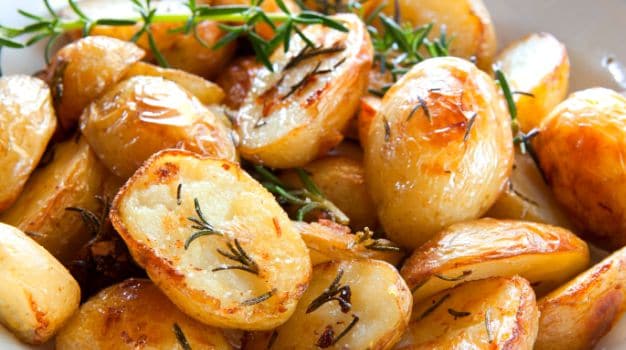
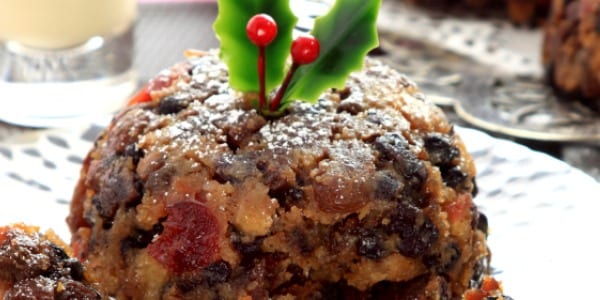
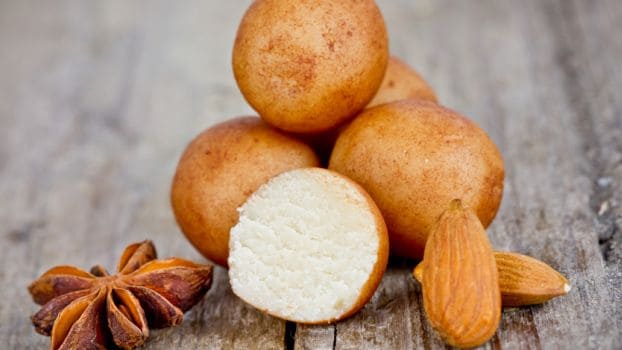
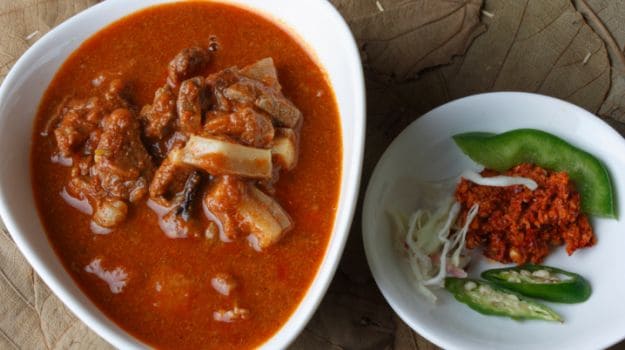
Syrian Christian ChristmasEva Mathew tells me about Christmases that she celebrates in Kochi. "My grandmother is extremely particular about serving certain dishes on Christmas. One is a duck curry or a duck roast; she even used to keep ducks and chickens at home at one time. If we don't find good enough duck, we sometimes substitute it with beef stew, which she simmered till it was a thick, deep, delicious dish." There is usually cake, and sometimes fish curry or a fish moilee, fragrant with the aromas of coconut milk and spices and served with fluffy appams.Vegetable side dishes are a must and sometimes, a glass of wine is totted up as part of the festivities. Egg roast is sometimes served too. But "the duck was an indispensable dish for Christmas," insists Mathew. "Granny loved to prepare duck, and even though her beef roast was very good and we all loved it, for her, the duck really made the meal."
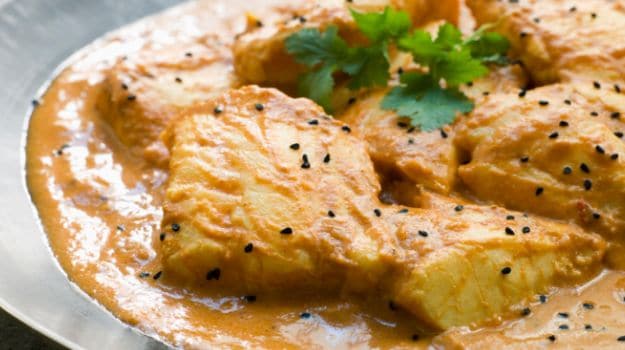
Advertisement







